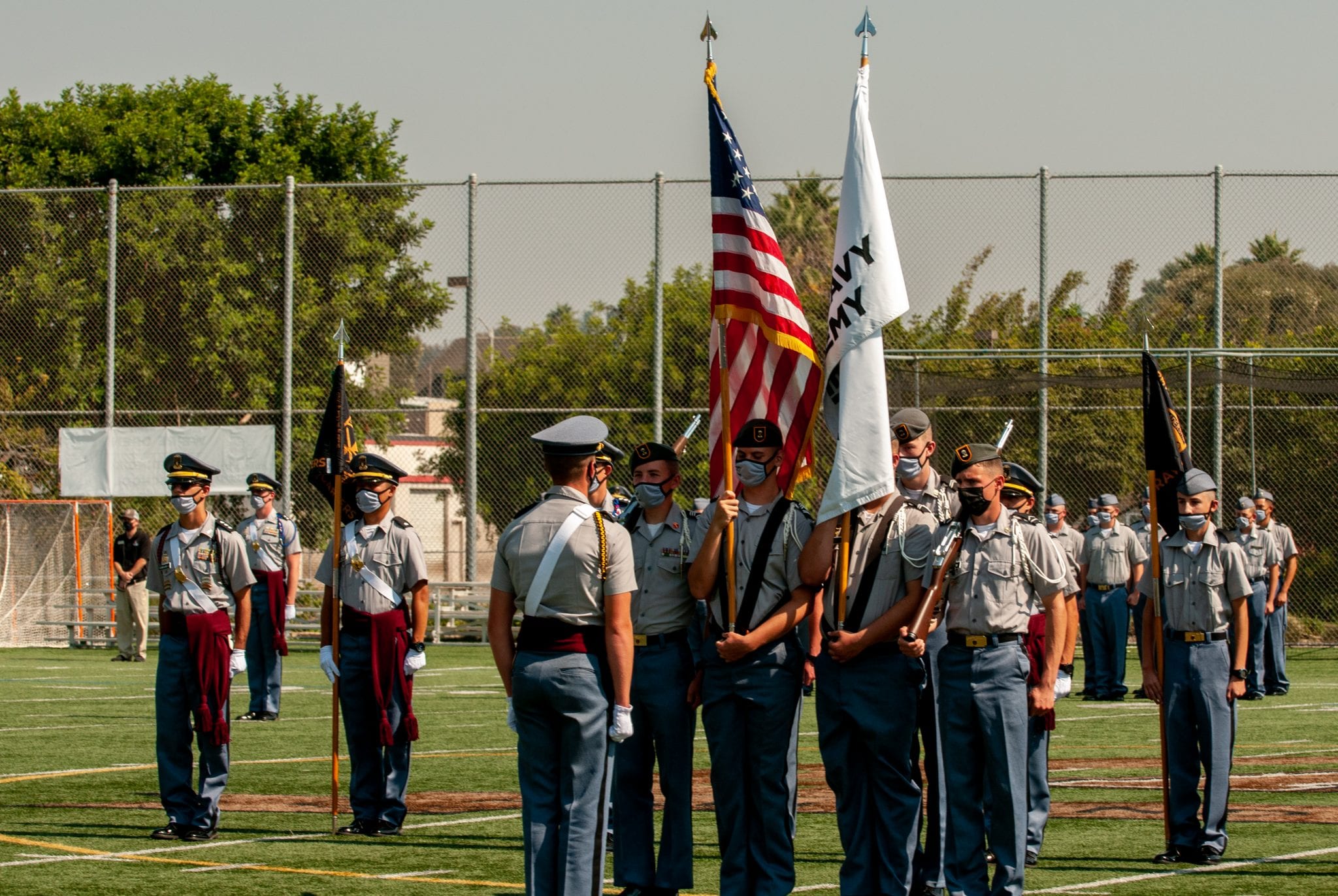 If you want your child to do well in college, think about sending your child to a private boarding school, perhaps a military school, where a disciplined lifestyle is integral to all aspects of campus life: academics, athletics, character development, and specialized leadership programs.
If you want your child to do well in college, think about sending your child to a private boarding school, perhaps a military school, where a disciplined lifestyle is integral to all aspects of campus life: academics, athletics, character development, and specialized leadership programs.
Structured Daily Schedule Leads to Self-Discipline
One of the key takeaways from attending a boarding school centers around the structured daily schedule. This can lead students to learn time management and prioritize tasks based on deadlines and goals.
Most private boarding schools begin the day with breakfast, an assembly, and follow with classes. Mid-day, they enjoy lunch, with some time to interact with peers and staff. After classes end, some boarding schools offer tutorial periods so students have a chance to work with the faculty on specific assignments or receive individualized instruction.
After the academic day ends, most boarding schools move into athletics or physical activities. There is also time reserved for clubs and other activities. At most boarding schools, the evening hours are a time for dinner, rest and relaxation, and then a mandatory study time. If a student is not getting passing grades, the school might even require attendance at a supervised study hall. Similar to a college setting, boarding schools generally set times for faculty office hours, so students can seek out individualized instruction and support with assignments.
Before students go to sleep, some boarding schools have a timeframe for dorm meetings. This time is often used for pep talks, announcements, room inspections, and personal hygiene. Most boarding schools tend to be strict about “lights out”, so students wake up on time and perform better in school. It is all part of learning a disciplined lifestyle. Structure helps students learn how to internally discipline themselves to balance their day, organize and prioritize tasks, meet deadlines, be timely, and much more.
College Prep Academics Demand Discipline
It is no surprise that discipline is woven into academics because learning course content, completing homework assignments, and working on team projects all demand a high level of discipline. In particular, students taking AP and Honors courses have to adhere to rigorous demands and the testing that follows.
Keep in mind though, at most private boarding and day schools, the emphasis is on self-discipline versus the imposition of external discipline. If a student is truly going to prepare for college, there is no sense in threats or coercive action on the part of faculty or staff. This is true at military schools as well because ultimately, the student must see the direct benefit of applying discipline to their studies.
This means, they must discipline their mind to focus, organize, and prioritize the work at hand, but it also requires students to be active listeners, participate in class, take good notes, and follow-through on assignments.
If a student has not followed a disciplined lifestyle while attending high school, they will be at a real disadvantage in college. College success is often determined by a student’s ability to set goals, manage time, and prioritize tasks.
But talking about discipline is one thing, but inspiring teens to actually develop a sense of discipline within themselves is an entirely different matter. This is the reason why Gurian Model Schools employ science-based methods specifically geared towards how students acquire academic discipline and learn best.
Beyond the classroom, students can also gain discipline through leadership training, character development, sports, the arts, and other activities.
Leadership Training Takes Discipline to New Levels
At many private boarding schools, but in particular, at military schools, there is an emphasis on leadership training. Unlike student government in public schools, military schools generally allow students to take an active role in the overall governance of campus.
This may include attendance at assemblies or formations, general communications about campus events and activities, and mentorship to fellow students. Top leaders are also expected to attend meetings, take the lead on various types of projects, and develop plans for new programs.
In some cases, students even submit ideas to shift policies and procedures. At one military boarding school in California, top student leaders recommended new policies for expanded study time hours. Now, that clearly demonstrates how leaders can inspire changes to bring about even greater discipline on campus.
Some military boarding schools also offer other a number of ways to acquire a sense of self-discipline, including JROTC coursework, drill exercises, and Officer Candidate courses that put students through a variety of physical and mental tests.
This is the kind of disciplined lifestyle that has the potential to inspire and develop grit, determination, and perseverance. As students learn how to lead, as well as follow, they are acquiring work skills that will serve them later on in their career and life. They will learn how to manage, delegate, work in teams, manage projects, and develop policies.
Character Development is the Backbone of a Disciplined Lifestyle
Let’s not forget about the importance of character as it relates to the idea of a disciplined lifestyle. If a teen does not see the benefits of discipline in their lives, then the tendency to rebel will most likely kick in. Students want to understand why they are doing something, and be self-determined in their direction, decisions, and choices.
Character Development, whether it is value-oriented or faith-based boarding school, serves as the backbone of a disciplined lifestyle, thereby informing all behaviors and actions. Developing good character stems from an understanding and appreciation of core values, honor systems, and interpersonal policies that abound at most boarding schools. Maturity and character are developed from the discipline and lessons learned during the formative years in middle and high school.
If not acquired, lack of character can make or break a college experience. At college or university, students are expected to live a disciplined lifestyle, one that adheres to a code of conduct and imposes high standards and expectations within academics, athletics, and social life. A military school can be the catalyst for this kind of personal growth and development.
JV and Varsity Sports Teach Teens How to Be Highly Disciplined
Which leads me now to athletics, where students learn so many life lessons. Athletics can be a real turning point for a teen, because performance is directly tied to the level of discipline that is followed. Students learn how to set goals, practice, and experience both wins and losses. While participating in sports, teens are acquiring self-discipline and the values that will serve them well in college, including: respect, responsibility, and integrity.
And, it is no surprise that great coaches truly know the value of discipline. They are often remembered by teens as primary mentors and often inspire middle and high school students to face challenges, strive for top performance, and work well within athletic teams.
A Disciplined Lifestyle Works Wonders
When parents wave good-bye to their child heading off to a college or university, it is critical to know a child was given every opportunity to prepare for this next milestone.
Boarding schools, and military schools in particular, are especially geared to help students acquire the necessary discipline to make a smooth transition to college. In college, students are expected to navigate as young adults, so a disciplined lifestyle in secondary school works wonders in preparing them for college and life beyond.
#discipline #selfdiscipline #boardingschool #privateschool #militaryschool #education #timemanagement #structure #characterdevelopment #collegeprep #athletics #academics #gurianmodelschools #gurian #jrotc #militaryacademy

Candace Heidenrich is the CEO of Aperture Advisory Associates, where she works with private secondary and higher education leaders to strengthen programs and practices. She founded Aperture in 2018 after more than a decade in a senior administrative role at a boarding school in California. Additionally, she held faculty and chair positions at private schools and colleges in Los Angeles and Ojai. Her background also includes director and executive level positions with start-ups and Fortune 500 corporations.
While earning her B.A. in Education and Humanities in the Lawrence Henry Gipson Scholar program, she studied abroad at Oxford before pursuing her master’s at the University of California, Santa Barbara. A frequent speaker at national conferences, she is a recognized thought leader and authority on enrollment management and marketing best practices.
